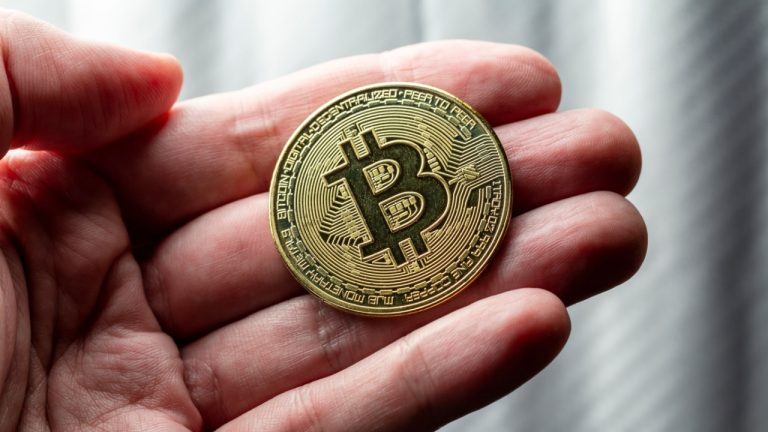
Alt season rush: Ethereum and DeFi get in shape for another hot summer

Alt season is here? ETH, DOGE and other altcoins rally to new highs as DeFi and Ethereum’s London hard fork promise further growth.
Altcoins like Ether (ETH), Dogecoin (DOGE) and Ethereum Classic (ETC) are spearheading a new alt season that seems to have taken off with a bang. Since a rising tide usually lifts all boats, there are several other cryptocurrencies that are benefiting from this growing interest in altcoins. Ether, however, may be the one generating the waves.
The price of ETH, the flagship altcoin, increased more than 65% over 30 days to finally break through the $3,500 barrier on May 6. This takes the yearly gains for the token to over 1,500%, as it was trading in the $215 range this time last year. The price surge led its market capitalization to go beyond $400 billion for the first time.
Cointelegraph asked Joshua Frank, CEO of The TIE, about the social media trends around Ether and what the cryptocurrency’s gains mean for altcoins. He answered: “Many investors consider Ethereum a proxy for the alt-coin market, and tweet volume continues to increase exponentially since July 2020. […] Tweet volume over 24 hours recorded an incredible 59,000 as Eth continues to push all-time highs.”

In percentage terms, Ethereum Classic — a continuation of the original Ethereum blockchain — has seen its value increase even more than the more popular coin of its sister blockchain. According to CoinGecko, ETC’s price gained nearly 400% in seven days to hit an all-time high of $167 on May 6. The Ethereum Classic blockchain sprang into existence after most developers migrated to the now more popular Ethereum blockchain following a hack on The DAO’s smart contracts in 2016, which cost the protocol $50 million in ETH.
The dominance of Bitcoin (BTC) has also dropped when compared with the 70% range it was resting in at the start of the year. It has been declining since, reaching a year-to-date low of 45.70% on May 6. The dominance metric essentially compares the market cap of BTC with that of all other cryptocurrencies combined.
BTC dominance usually decreases when altcoins instead dominate the interest of crypto investors. The only time the metric has ever been lower than its current level was just before the cryptocurrency market crash in 2018 when investors were desperately looking for alternatives to Bitcoin, as the flagship cryptocurrency had dropped by over 60% at the time.

Eric Anziani, chief operating officer of cryptocurrency exchange Crypto.com, explained to Cointelegraph why he believes Bitcoin’s dominance is decreasing this time: “The price action acts in tandem with investors’ psychology, dominant narratives in the space, and therefore moves in cyclical patterns.” He added further:
“As the narrative around institutional adoption of Bitcoin has tapered off somewhat, investors have begun to turn to blockchains and protocols other than Bitcoin. […] Although Bitcoin is a very sound store-of-value, the market as a whole is realizing how pivotal altcoins and their respective projects are to the future of crypto.”
This change in market dynamics is evident in the derivatives markets as well. On May 5, Ether futures volumes briefly surpassed those of Bitcoin. The futures premiums for ETH have normalized at 25%, after peaking at 45% during mid-April.
This indicates that optimism is not nearly close to its peak despite ETH pushing to new highs on a daily basis, thus signaling that there is still room for growth when prices are compared with market sentiment.
London hard fork will lead to faster DeFi growth
Ether’s price surge essentially happened after the Ethereum blockchain underwent its Berlin upgrade on April 15. The hard fork incorporated four Ethereum Improvement Proposals that were voted on by the developer community. Two of these addressed gas costs for specific transaction types, and while they reduced the costs for some types of transactions, they increased them for “op-code transactions,” which could be used for denial-of-service attacks. The other two proposals expanded the categories of transaction logic.
James Beck, director of communications and content at ConsenSys — a blockchain technology company backing Ethereum’s infrastructure — told Cointelegraph: “One of the nice effects of the Berlin hard fork was that gas prices for DEX aggregators became much cheaper. For example, using MetaMask’s swap feature is now resulting in 40,000 GWEI decrease to trade tokens.”
Ethereum is the most prominent blockchain used in the decentralized finance markets, and its price often goes hand in hand with DeFi’s growth. At the time of writing, the total value locked in DeFi is at a new high of just over $82 billion. The TVL in DeFi has been rapidly growing since the beginning of the year and has nearly doubled since the start of February. Flora Sun, managing director of Binance X — crypto exchange Binance’s developer initiative — opined on the reason for this growth:
“There’s a lot of innovation in DeFi protocols these days. In the past, lending and DEX were the main DeFi protocols, but now starting with AMM, there are various types of DeFi that meet various needs, like vaults and insurances. DeFi still offers a much higher yield than traditional finance, so naturally, it is attracting a lot of crypto liquidity.”
Automated market makers, or AMMs, are now integral to the DeFi ecosystem. As the name suggests, an AMM is an automated trading model that decentralized exchanges use instead of the order books used by traditional, centralized exchanges. When protocols use AMMs to supply liquidity pools, it means that the price of the assets is calculated by a fixed, predetermined mathematical formula based on the supply of the two tokens involved in the trade/swap.
Related: They see ETH rollin’: Why did Ether price reach $3.5K, and what’s next?
According to ConsenSys’ quarter-one DeFi report, only 1% of all Ethereum addresses are currently using DeFi platforms. Thus, the room for adoption seems to be immense as more investors look to prioritize decentralization in their portfolios. The report also reveals that in the first quarter of 2021, nearly 51% of the total fees paid were on the Ethereum blockchain — more than double those of the Bitcoin blockchain. The decentralized exchange Uniswap by itself took nearly half the amount in fees taken by Bitcoin.
Additionally, another improvement proposal for Ethereum, EIP-1559, has been greenlit by the developer community as a part of the London hard fork that’s scheduled to happen in July. Anziani further spoke on the hard fork:
“This upgrade will begin burning transaction fees, naturally reducing Ethereum’s rate of inflation. If network usage is high enough, Ethereum may even become deflationary. This is a highly bullish development that the market has just begun to price in.”
Additionally, Ether has shown a low level of global leverage across exchanges, which means that ETH holders are dealing more in spot holdings than indulging in the use of leverage to long Ether. Frank opined on what this might mean: “This indicates that holders intend to either hold Eth in their wallets and/or use Eth to interact in the eco-system with DeFi or other protocols rather than use leverage as a purely speculative play to profit.”

Other alts grow as well
Due to the growth of DeFi, alternative platforms to Ethereum, like Binance Smart Chain and Cardano, have been seeing increased adoption by DeFi protocols and decentralized applications as people seek to avoid Ethereum’s high gas fees, which have become an issue for users all around. Since the gas-fee issue has persisted for a while, BSC and Cardano have accommodated some of 2021’s DeFi growth. On the subject, Sun pointed out:
“Since BSC launched in September 2020, in 8 months, there are 500+ projects building on BSC and its ATH daily transaction volume has exceeded Ethereum’s by 450% and currently boasts of $56 billion in its DeFi ecosystem. All the projects building on top of BSC contribute to this growth.”
Binance Coin (BNB), the native cryptocurrency of both Binance Smart Chain and Binance Chain, has also quickly risen from trading in the $50 range on Feb. 1 to reaching an all-time high of $679.82 on May 3. That is a growth of over 1,200% in less than 100 days, leading BNB to rise to become the third-biggest cryptocurrency by market capitalization. According to CoinMarketCap, the token has a market cap of nearly $100 billion as of the time of writing.
Cardano’s native ADA coin also leaped to a new all-time high of $1.70 on May 7. The cryptocurrency has grown more than 3,200% over the past year. Cardano has also announced various partnerships and launches over the past month. Despite this, Beck backs layer-two solutions over Cardano, saying: “More DeFi users will flock to Layer 2 networks that are Ethereum compatible. DeFi developers are looking to move their applications and users on to layer 2 in order to take advantage of lower gas fees.”
According to L2 Beat, the TVL in layer-two solutions has increased nearly twentyfold, from $38.4 million on Jan. 1 to around $718 million at the time of writing. It briefly even surpassed $1 billion in both March and April. Beck further stated:
“Synthetix and dYdX have announced they have been ardently working on integrating with Layer 2 solutions. Synthetix has been working with Optimism for months now, while dYdX recently announced that their new cross-margined perpetuals are live on Starkware’s STARK based roll-up solution. We expect this trend to accentuate for the rest of the year.”
Among the several coins seeing unprecedented gains — in addition to Ether and the native cryptocurrencies of Ethereum alternatives — the Shiba Inu-themed meme coin Dogecoin (DOGE) is the one catching the most mainstream media attention. It’s getting so much attention that it could be the leading indicator for alt season.
Related: DOGE as internet money? TikTokers and sports fans see a use case for Dogecoin
The coin broke out from the $0.06–$0.07 range on April 12 to reach its all-time high of $0.69 on May 5. DOGE is currently trading at around $0.71 and has posted year-on-year gains of over 35,000%. However, May 8 will be a critical day for DOGE, as Elon Musk’s appearance on Saturday Night Live may dictate what lies ahead for the coin and, quite possibly, impact this alleged alt season as well.
Go to Source
Author: Anirudh Tiwari








